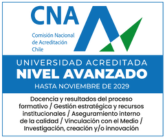Composites of nanostructured porous silicon and silver (nPSi-Ag) have attracted great attention due to the wide spectrum of applications in fields such as microelectronics, photonics, photocatalysis and bioengineering, Among the different methods for the fabrication of nanostructured composite materials, dip and spin-coating are simple, versatile, and cost-effective bottom-up technologies to provide functional coatings. In that sense, we aimed at fabricating nPSi-Ag composite layers. Using nPSi layers with pore diameter of 30 nm, two types of thin-film techniques were systematically compared: cyclic dip-coating (CDC) and cyclic spin-coating (CSC). CDC technique formed a mix of granular and flake-like structures of metallic Ag, and CSC method favored the synthesis of flake-like structures with Ag and Ag2O phases. Flakes obtained by CDC and CSC presented a width of 110 nm and 70 nm, respectively. Particles also showed a nanostructure surface with features around 25 nm. According to the results of EDX and RBS, integration of Ag into nPSi was better achieved using the CDC technique. SERS peaks related to chitosan adsorbed on Ag nanostructures were enhanced, especially in the nPSi-Ag composite layers fabricated by CSC compared to CDC, which was confirmed by FTDT simulations. These results show that CDC and CSC produce different nPSi-Ag composite layers for potential applications in bioengineering and photonics.



